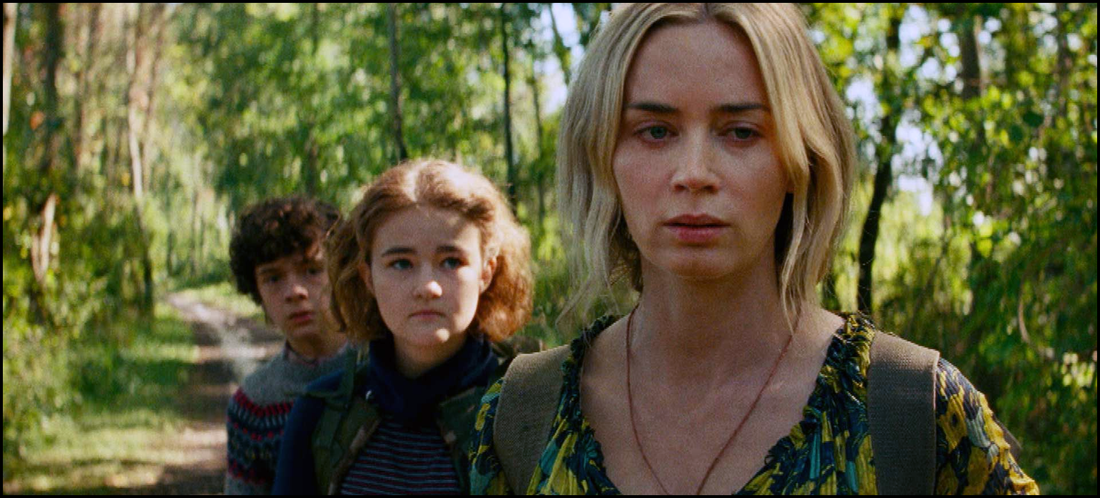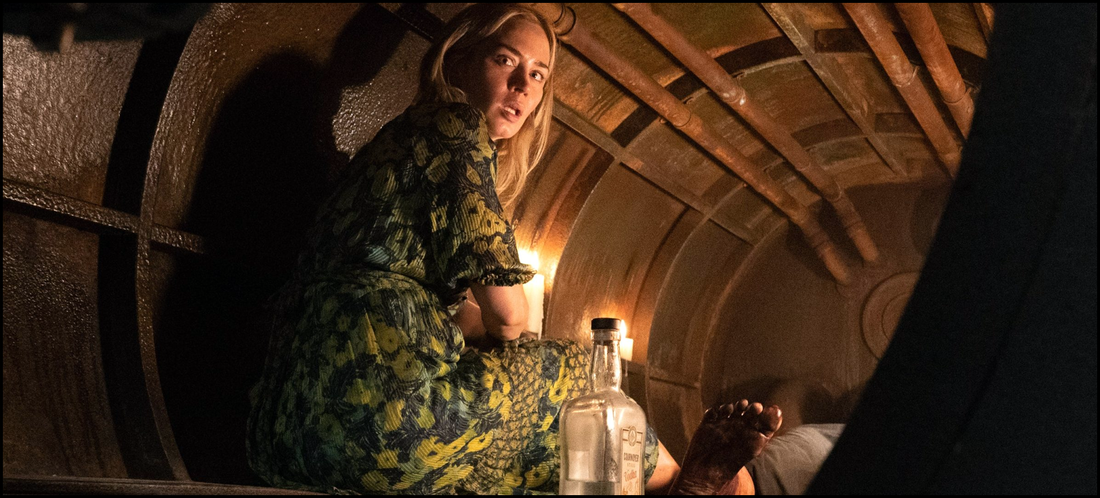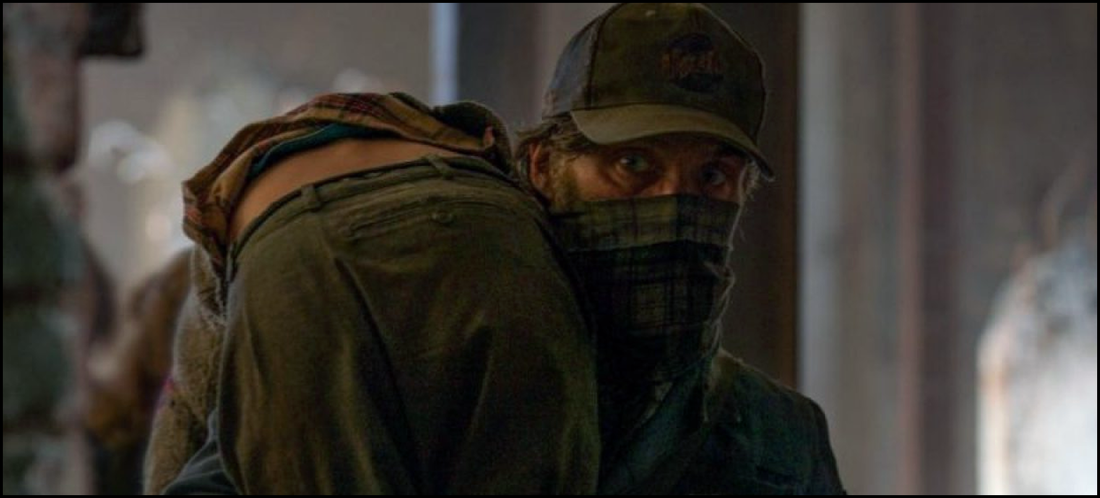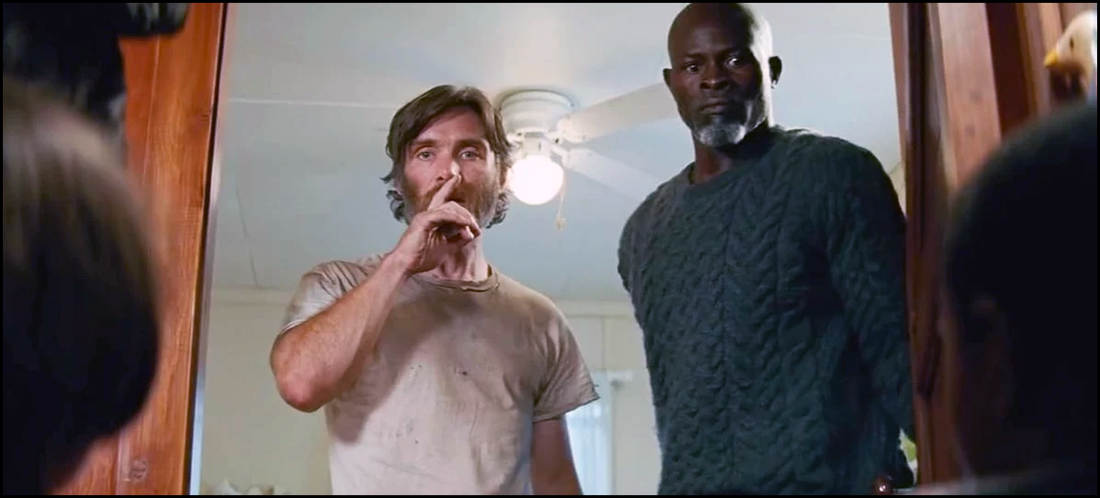It arrived without a lot of the typical studio fanfare, flying in low under every critic’s radar. Without a lot of big studio bluster, the film opened to solid critical praise and enjoyed growing audience approval. The film’s ensemble – John Krasinski, Emily Blunt, Millicent Simmonds, and Noah Jupe – played a believable family caught up in the aftermath of an alien invasion (of sorts); audiences weren’t provided much detail because that really didn’t involve the feature’s central premise – too much sound is definitely a bad thing.
Quite possibly defying the expectations of everyone involved, A Quiet Place quietly went on to big business. The modestly-priced SciFi/Fantasy was reportedly filmed for $17M but grossed nearly $350M worldwide, so it was only smart for everyone involved to start thinking about the property as a possible franchise. And why not? Moviegoers love a good alien invasion story; there’s always been a market for quality horror features; and a young cast could be around for years, paving the way for future installments. It was, arguably, a brilliant trifecta.
While I wasn’t gaga over the original (I thought it worked as a great starting point but left me asking a lot of questions, mostly about what happened to set this all up), I did find it an exceptional debut for writer/director Krasinski. Many first pictures struggle to bring all storytelling elements together, but A Quiet Place – as bizarre as this may sound – felt like a ‘labor of love.’ The script was efficient – only bothering to chart the information necessary to tell this story – and the performances were noteworthy. So, yes, I was up for a sequel.
Though the COVID pandemic kept this one in drawers for an extra year, A Quiet Place Part 2 has finally screened for the masses; and I suspect the audience that made the original a success story will happily continue their efforts at seeing this franchise survive. Krasinski – whose character met his demise in the first one – is back (albeit briefly) in the film’s opening; and, thankfully, we’re finally given a bit more about just where these nasty aliens came from, though again he only parses out what we need to know. Here’s hoping there will be even more secrets revealed if Part 3 comes to silver screen life.
From IMDB.com: “Following the events at home, the Abbott now faces the terrors of the outside world. Forced to venture into the unknown, they realize the creatures that hunt by sound are not the only threats lurking beyond the sand path.”
I’m going to say this right away mostly so that I can get it out of the way: Hollywood types love to turn on the common man.
For some reason, storytellers possess a never-ending disdain for folks in the middle class. Any time there’s an alien invasion, lo and behold the folks who don’t reside on either coast typical end up being portrayed as savages who’ll stop at nothing to survive, even when that means doing unspeakably evil things to their friends and neighbors. Realistically, there’s a certain nugget of potential truth to this: none of us can truly say what we’ll do when the Apocalypse arrives, but the fact that storytellers like Krasinski rarely turn their tales against the wealthy or the elite speaks volumes.
Those threats lurking beyond the sand path that IMDB.com speaks of? Why, those would be your neighbors.
Stories like this take the easiest, laziest approach. They’re quick to portray a world wherein the guy next door has now been reduced to a sadist who’s willing to capture you, maybe even eat you, maybe even rape you, and it’s all because this is the true nature of the world we apparently have left for ourselves once the aliens reduce us to the primitives we are. Naturally, critics and the intellectual elite (i.e. your betters) love these narrative developments as it only gives them fodder for dinner table conversation at the next celebrity presser or fundraising dinner. It gives them fuel for their next thesis. It shows the way they honestly think of their common man and what he will do to endure. The little people are destroying the climate, after all, so why not hype up their worst instincts in motion pictures?
In Krasinski’s brave new world, the only folks willing to embrace survivors and seriously consider the future of mankind are those who live on an island, thus being functionally removed from the alien menace. This idyllic commune (another Hollywood-approved existence for us commoners) still has picnics and cookouts and swing-sets. They’re living the good life, and they’re reaching out by means of an island radio station offering a secret message for anyone left alive to look ‘beyond the sea.’ It’s quaint, but since the aliens don’t appear to understand our language, why are we speaking in code? Why not actually broadcast a message, eh? In plain English?
So, yes, philosophically I thought A Quiet Place Part II made more negative noise than it needed. I’ve no doubt Krasinski thought this the natural progression of the society he’s created, making him the perfect product of his Hollywood upbringing, that highbrow Common Core. To his credit, the auteur keeps the focus on the family – that great backbone of global culture (not typically American, though we like to think it so) – and what remains of his ensemble continues to impress: Blunt is the noble matriarch – the parental glue – and she’s raising children who dutifully look out for one another even in the direst predicament. The always impressive Cillian Murphy joins the group as the kind neighbor who – despite his worst intentions – is forced to do the right thing.
But as a thrill machine?
Still … I hope that island has a good supply of hearing aid batteries.
Recommended. I wasn’t overwhelmed by A Quiet Place Part II any more than I was its predecessor. To their credit, both films are lean, mean, audience-pleasing machines; neither leaves them wanting more but neither leaves them with an empty stomach either. Though I agree with writer/director Krasinski about this world being a fun place to play (for a storyteller, not so much his characters), I’d argue that there’s not room for all that much variety going forward unless he’s willing to invest in greater narrative infrastructure and a vastly greater budget.
-- EZ





 RSS Feed
RSS Feed